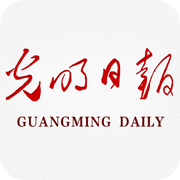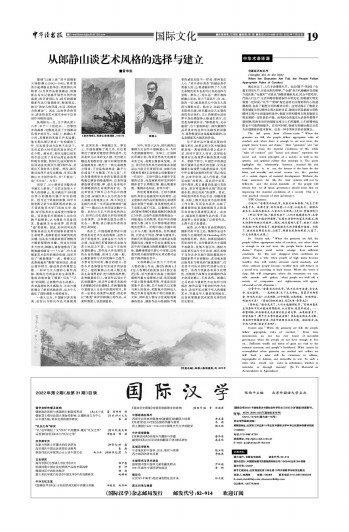仓廪实而知礼节
/cānglǐn shí ér zhī lǐjié/
When the Granaries Are Full,the People Follow Appropriate Rules
of Conduct.
粮仓充实了,人们才会懂得礼节。出自《管子·牧民》:“仓廪实则知礼节,衣食足则知荣辱。”“仓廪”是古代储藏米谷的地方或设施。“仓廪实”“衣食足”指粮食储备充足,民众不愁吃穿,代指人们生产、生活所需的物质条件非常充足,即物质文明发展到一定阶段;“礼节”“荣辱”指社会的礼仪规矩和内心的道德准则,包括了制度文明和精神文明。这句话揭示了物质文明和制度文明、精神文明之间的关系:物质文明是制度文明和精神文明产生的基础和条件,制度文明和精神文明是物质文明发展到一定阶段的产物。如果民众的基本生活条件都得不到保障,即使有良好的制度也难为人们所遵循,人们的精神品格也不可能得到提升。在任何时候,物质文明建设都应当成为治国理政的基本要务。这是一种非常务实的治国理念。
Thefull quote from Guanzi reads:“When the granaries are full,
the people follow appropriate rules of conduct, and when there is
enough to eat and wear, the people know honor and shame.
”Here“granaries”and“eat and wear”mean the material conditions
of life, while“rules of conduct”and“honor and shame”represent the
social and moral principles of a society, as well as the systems and
spiritual culture that underpin it. The quote highlights the
relationship between material life and morality,that is to say, the
former is the basis for the latter, and morality and social norms are
the product of a certain degree of material development. Without
the basic assurances for life, the best systems will not be followed,
and the moral standards of the people will remain low. At all times,
governance should focus first on improving the material conditions
of a society. This is a very practical concept of state governance.
引例 Citations:
◎故曰:“仓廪实而知礼节,衣食足而知荣辱。”礼生于有而废于无。故君子富,好行其德;小人富,以适其力。渊深而鱼生之,山深而兽往之,人富而仁义附焉。(《史记·货殖列传》)
(所以[管仲]说:“粮仓充实了,人们才能懂得礼节;衣食丰足了,人们才能分辨荣辱。”礼因生活条件的富足而建立,因生活条件的缺乏而废弃。因此,地位高的人富了,就会广泛推行道德;平民百姓富了,就会根据自己的力量遵行道德。水深了,鱼自然在那里生长;山深了,野兽自然奔向那里;人富了,仁义自然随之出现。)
So Guanzi said,“When the granaries are full, the people follow
appropriate rules of conduct, and when there is enough to eat and
wear, the people know honor and shame.”Proper social norms
emerge from sufficient conditions for life, and disappear when
conditions are absent. That is why when people of high status
become wealthy, they will widely advocate moral standards, and
when ordinary people become wealthy they will behave in a moral
way according to their means. Where the water is deep, fish will
congregate; where the mountains are vast,wild animals will gather;
when people are well off, a society of compassion and righteousness
will appear.(Recordsofthe Historian)
◎管子曰:“仓廪实而知礼节。”民不足而可治者,自古及今,未之尝闻。……夫积贮者,天下之大命也。苟粟多而财有余,何为而不成? 以攻则取,以守则固,以战则胜。怀敌附远,何招而不至? (贾谊《论积贮疏》,见《汉书·食货志》)
(管仲说:“粮仓充实了,人们才能懂得礼节。”百姓的基本生活条件不足而能治理得很好,从古到今,还没听说过。……积蓄财物、贮存粮食是关系国计民生的大事。如果粮食多了、财富充裕了,那干什么事不能成功呢? 用来进攻则攻无不取,用来防守则固若金汤,用来作战则无往而不胜。招抚敌方、远方的人归顺,谁会不来呢?)
Guanzi said,“When the granaries are full, the people follow
appropriate rules of conduct.” From time immemorial,no one has
ever heard of successful governance when the people do not have
enough to live on... Sufficient wealth and stores of grain are vital
to the national economy and people’s livelihood. What cannot be
accomplished when granaries are stocked and coffers are full?
Such a ruler will be victorious in offense,impregnable in defense,
and invincible in war. To such a ruler,who would not come in
submission, whether in surrender or through amnesty?
(Jia Yi: Memorial on Accumulation in Agriculture)



 上一版
上一版


 缩小
缩小 全文复制
全文复制 上一篇
上一篇